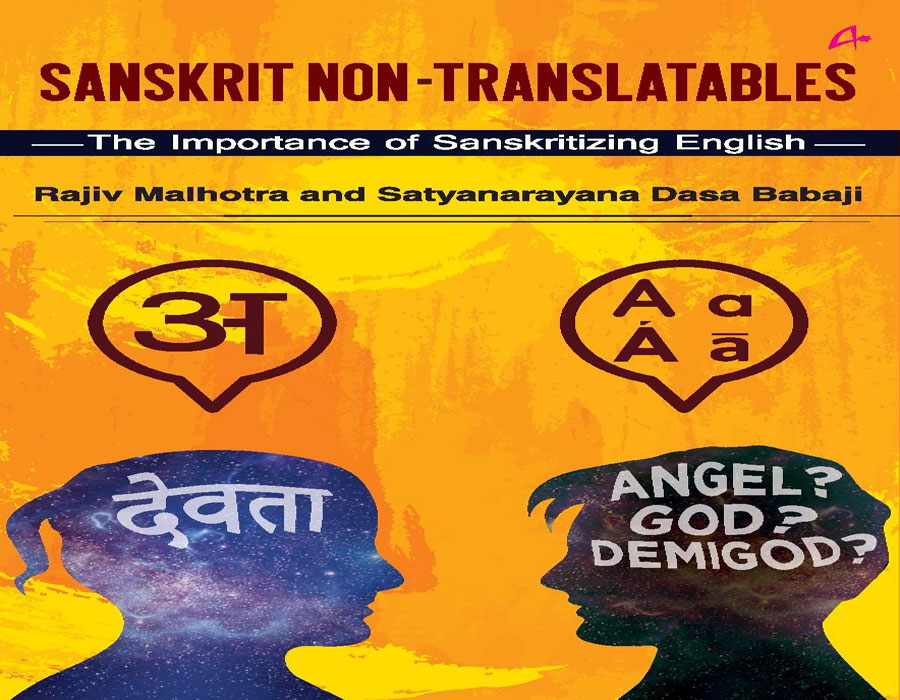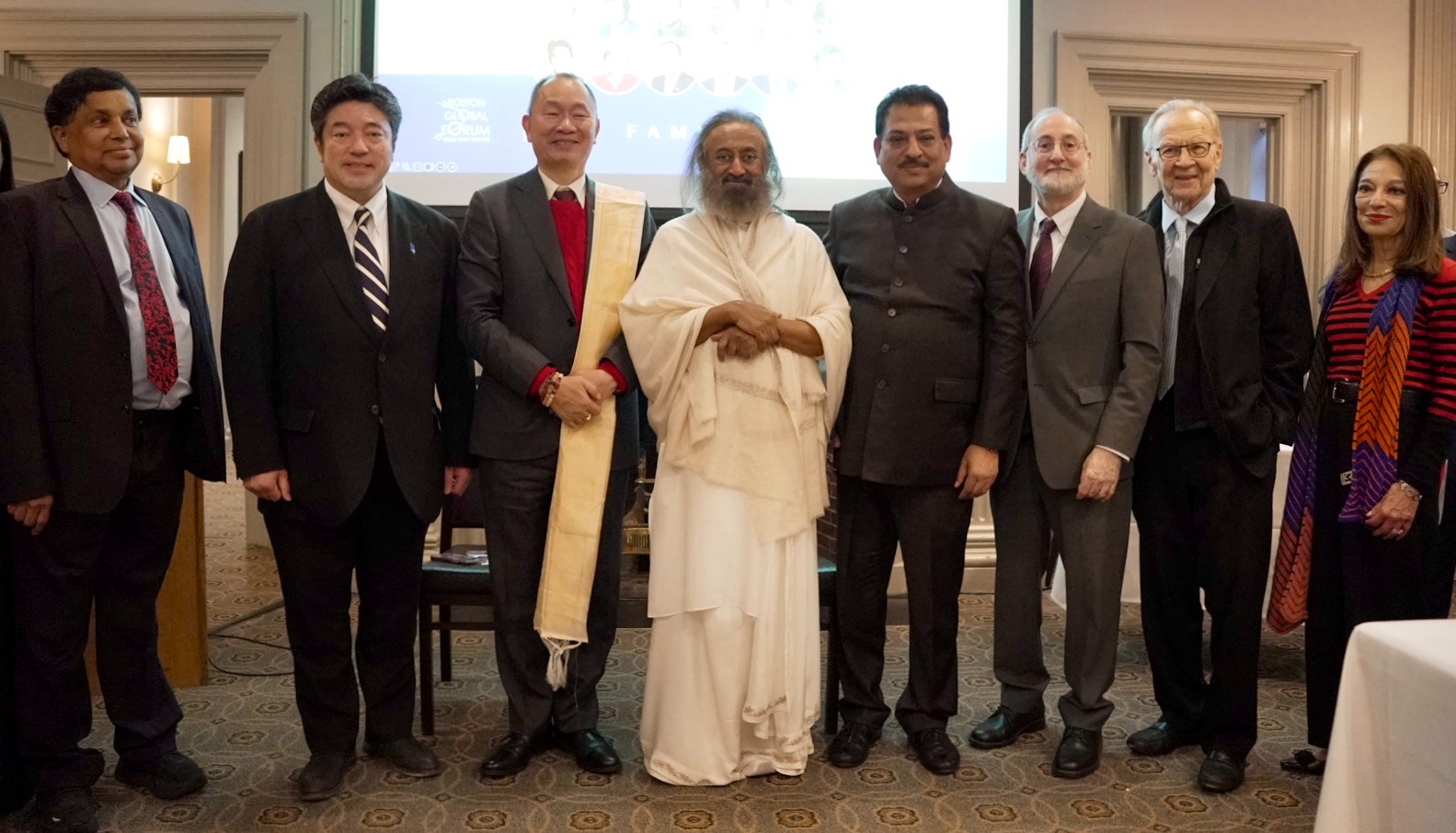Name: Sanskrit Non- Translatables
Authors: Rajiv Malhotra and Satyanarayana Dasa
Publisher: Amaryllis Publishing, an imprint of Manjul Publishing House
Sanskrit is a divine language; therefore, it is called deva bhasha, or the language of gods. The letters of Sanskrit are called akshara, which means imperishable. They are neither created nor destroyed. When we speak them with our tongue, we do not create them but make them manifest. According to Bhagavat Purana (12.6.43), the letters of Sanskrit manifested from the mouth of Brahma with their various divisions such as svaras (vowels) and vyanjanas (consonants), according to the place of pronunciation.
It is from the sound of these letters that the world was created. There are 33 vyanjanas and they represent the 33 devas namely, 12 Adityas, 11 Rudras, 8 Vasus and two Ashvini Kumaras. The first 25 vyanjanas beginning with k are grouped in five groups, each group having five vyanjanas. They represent the five sets of Mahabhutas (material elements), five karmendriya (working senses), five jnanendriya (cognitive senses), five tanmatras (subtle elements), and five vishayas (sense objects). The sixteen svaras represent the sixteen types of creatives energies, also referred to as sixteen kala. Therefore, every Sanskrit word has a specific energy, or vibration attached to it.
Modern science has proven that matter is nothing but energy, or a vibration. Therefore, it makes sense that the world was created from the sound vibration of Sanskrit letters. This is also the reason that the great sages who had perfected the science of mantra could bless or curse someone. Their words could create the corresponding objects. According to the philosophy of Sanskrit vyakaranam, there is an eternal relationship between a Sanskrit word and its meaning. For example, by chanting the mantra related to a specific deity, one can have an experience of that deity because the deity of the mantra and the mantra have an inseparable relationship. In Bhagavad Gita (8.13), Krishna says that if one leaves one’s body while reciting the divine sound of Om, then one will become free from material conditioning. This is so because although Om appears to be an ordinary sound, it is actually the name of the absolute reality and carries all the powers in it of the supreme person.
Traditionally, before one studied the Sanskrit Vyakaranam, one has to study Shiksha, which is the science of pronunciation. In Sanskrit a great stress is given on proper pronunciation of the words. It is specifically true of Vedic words which have an intonation. The meaning of a word can changes with a change in intonation. One of the very important parts of Hinduism is recitation of stotras (prayers) and chanting of mantras. Recitation of these Sanskrit verses and mantras brings spiritual benefit. Even those people who do not understand the meaning can derive benefit just by reciting them. However, if one translates these stotras and mantras into English then one cannot get the benefit of reciting the translation. Sanskrit words have an inherent potency in them, which is not available if it is translated into English. There is an interesting story in the sixty books of Bhagavat Purana to depict this point. There was a man called Ajamila, who was born in a pious family. However, due to bad association, he became attached to a prostitute and thus became deviated from his religious life. In the association of the prostitute, he began drinking alcohol and to please her, he would steal from others. He was so enamored by the prostitute that he married her and had a few children from her. The name of his youngest son was Narayana. When the time for Ajamila’s death came, he became frightened. Out of fear, he shouted out the name of his youngest son who was very dear to him, “Narayana!” Because Narayan happens to be the name of God Vishnu, incidentally, he got the benefit of reciting Vishnu’s name. This protected him from going to hell. This story depicts the inherent potency in Sanskrit words, especially the names of God. Such a benefit is not possible if the word Narayana is translated into English as, “One who resides in every living being.”
It is not only that by translating Sanskrit words, one loses the spiritual benefit, but there is also a loss of the original sense of the word. For example, the word Rishi, in Sanskrit means, “One who sees the mantra,” (rishayah mantra-drishtarah) or, “One who has the direct experience of the truth.” But if we translate Rishi as, “A sage,” then the original sense of the word Rishi is lost. According to the dictionary meaning, the word Sage means, “A profoundly wise man, especially one who features in ancient or legend.” Therefore, it is not wise to translate some of the important words into English.








 OpinionExpress.In
OpinionExpress.In















Comments (2)
Its a must buy
This books is a must buy for understanding true meaning of selected saskrit word.